This spring, Harvard Law School showcased the works of faculty, alums, and other affiliated individuals at book events throughout the semester. The Harvard Law School Library continued its ongoing series of book talks featuring works by Professors Richard Lazarus, Diane Rosenfeld, and Henry Smith, while book discussions were also held at and sponsored by entities across the school, including the Berkman Klein Center, the Human Rights Program, and a number of student organizations. Here, we feature a selection of the book events that took place during the spring semester.
The Bonobo Sisterhood: Revolution Through Female Alliance
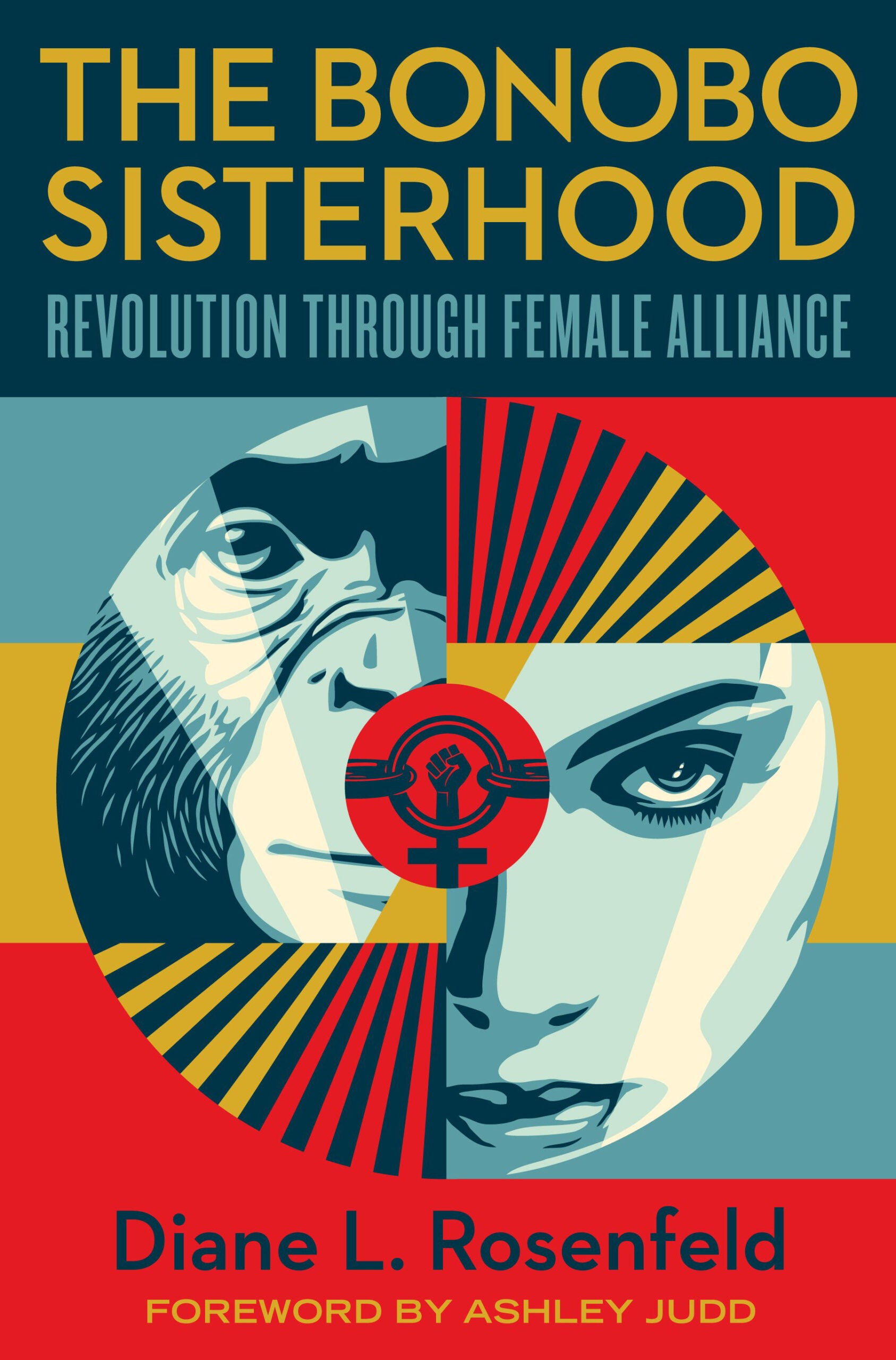
Speaking about her new book during an event at Harvard Law School, Diane Rosenfeld LL.M. ’96 contended that the law often does not help women escape violence at the hands of men. The lecturer on law and founding director of the Gender Violence Program at Harvard Law School referenced Supreme Court cases that struck down provisions of the Violence against Women Act and denied the right to enforce an order of protection. Her book proposes a different way to help women: the bonobo way.
The book, “The Bonobo Sisterhood: Revolution through Female Alliance,” provides a roadmap to eliminating male sexual coercion in humans based on the female-led social order of bonobos. It was inspired by a course Rosenfeld taught on theories of sexual coercion with Harvard University anthropologist Richard Wrangham, who joined her at a book talk sponsored by the Harvard Law Library on March 23. The basic bonobo principle, said Rosenfeld, is that “no one has the right to pimp my sister, and by pimp I mean harm, exclude, coerce, threaten, gaslight, abuse. … And everybody is my sister.”
Read the full coverage of Professor Rosenfeld’s book talk
The Making of Environmental Law (second edition)
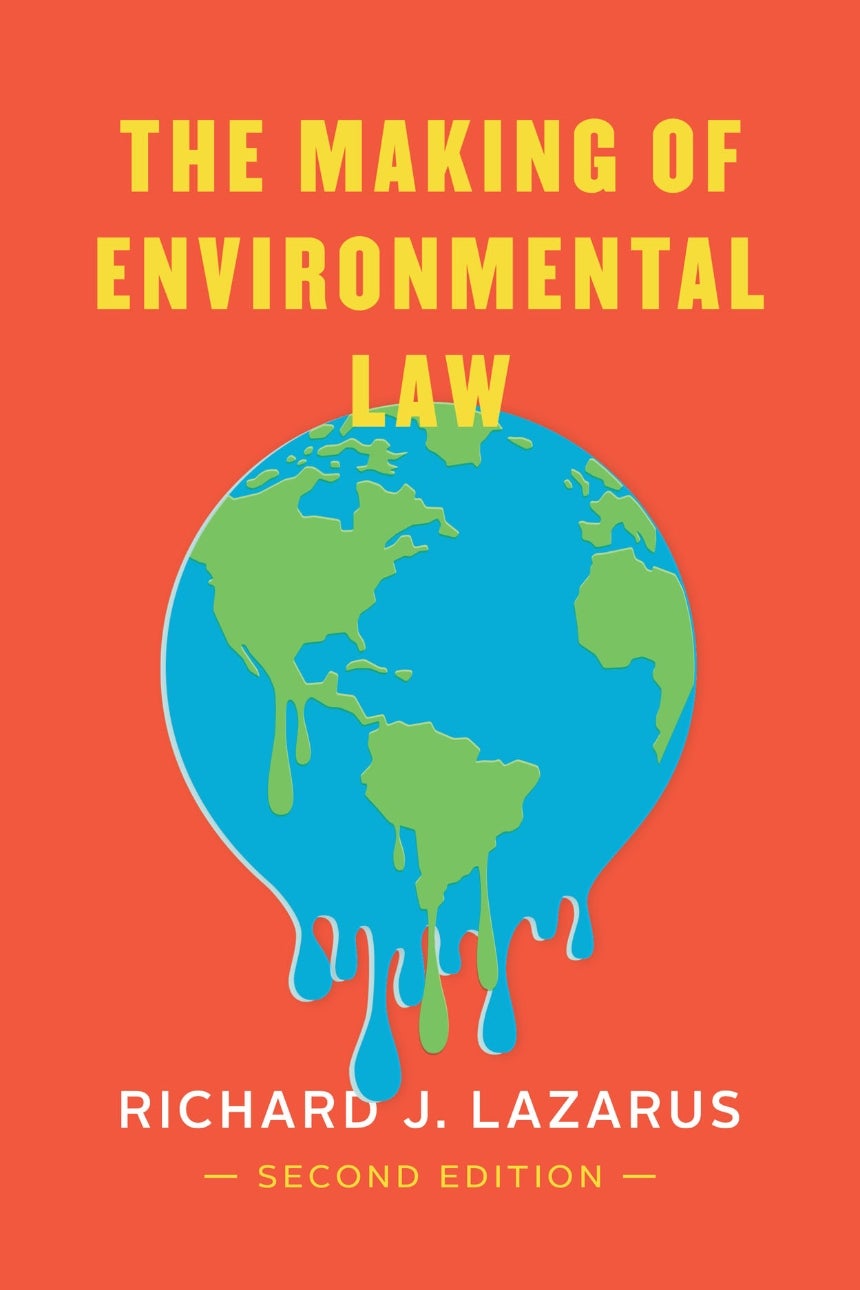
Richard Lazarus ’79 recently took an audience at Harvard Law School through a vivid exploration of the making of environmental law, the topic of his landmark book of the same name, which was first published in 2004 and which he has extensively revised in a new edition published earlier this year, taking stock of developments over the last two decades.
In the talk sponsored by the Harvard Law School Library, Lazarus, the Howard and Katherine Aibel Professor of Law, began by asking the audience to consider why it is so hard to make environmental law, drawing on his many years of experience on the frontlines of legal and policy battles. He was joined by panelists Martha Minow, 300th Anniversary University Professor, and Andrew Mergen, a visiting assistant clinical professor of law and faculty director of the Emmett Environmental Law & Policy Clinic. Part of the answer, said Lazarus, has to do with the laws of nature and the nature of lawmaking systems, and how they meet each other and collide.
“What nature does,” he said, “is spread out cause and effect when it comes to environmental contamination and pollution over time and space.” Accidents in one place have consequences in another. Accidents at one time have consequences at another. “We are not talking about minutes. We are talking about years and decades, he said. “We are not talking about yards. We are talking about miles and thousands of miles.”
“And when you spread cause and effect out that has consequences for law. You are regulating people and activities at one time and one place for the benefits that will be secured for people at another time and another place. It is inherently distributional.” And that makes it hard to pass those laws, he said, “because the benefits and the burdens are spread out.” In addition, under these circumstances, it’s hard to know exactly what the cause and consequence will be. “Environmental law is riddled with uncertainty.”
Read the full coverage of Professor Lazarus’ book talk
Wesley Hohfeld: A Century Later
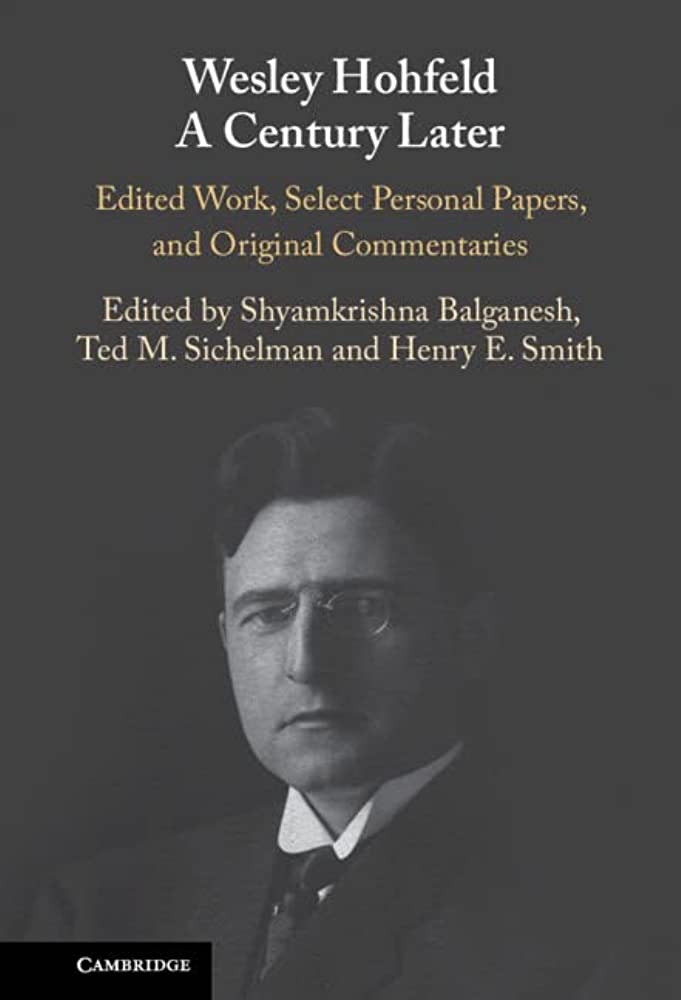
From Cambridge University Press: “Wesley Hohfeld is known the world over as the legal theorist who famously developed a taxonomy of legal concepts. His contributions to legal thinking have stood the test of time, remaining relevant nearly a century after they were first published. Yet, little systematic attention has been devoted to exploring the full significance of his work. Beginning with a lucid, annotated version of Hohfeld’s most important article, this volume is the first to offer a comprehensive look at the scope, significance, reach, intricacies, and shortcomings of Hohfeld’s work. Featuring insights from leading legal thinkers, the book also contains many of Hohfeld’s previously unseen personal papers, shedding new light on the complex motivations behind Hohfeld’s projects. Together, these selected papers and original essays reveal a portrait of a multifaceted and ambitious intellectual who did not live long enough to see the impact of his ideas on the study of law.”
25 Million Sparks: The Untold Story of Refugee Entrepreneurs
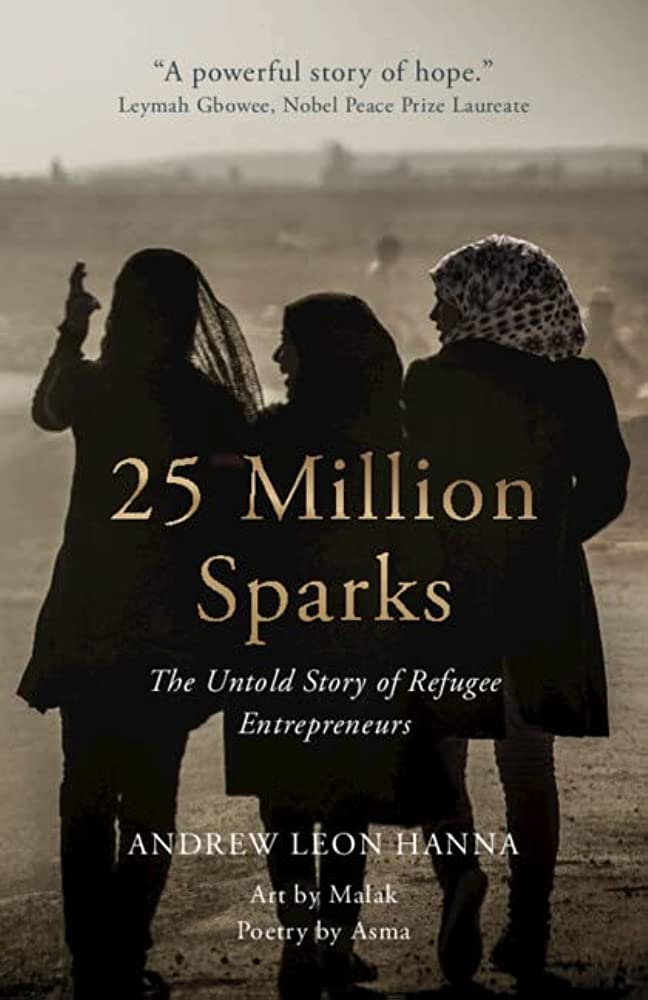
Andrew Leon Hanna’s parents, who immigrated to the United States from Egypt three decades ago, served as inspiration for his book, “25 Million Sparks: The Untold Story of Refugee Entrepreneurs,” which chronicles the lives of three women entrepreneurs living in the Za’atari refugee camp in Jordan, the world’s largest for Syrian refugees. While at Harvard Law, Hanna, who graduated in 2019, was an active member of Harvard Defenders and the Harvard African Law Association, in addition to being a Harvard Law Review editor.
From Cambridge University Press: “’25 Million Sparks’ takes readers inside the Za’atari refugee camp to follow the stories of three courageous Syrian women entrepreneurs: Yasmina, a wedding shop and salon owner creating moments of celebration; Malak, a young artist infusing color and beauty throughout the camp; and Asma, a social entrepreneur leading a storytelling initiative to enrich children’s lives. Anchored by these three inspiring stories, as well as accompanying artwork and poetry by Malak and Asma, the narrative expands beyond Za’atari to explore the broader refugee entrepreneurship phenomenon in more than twenty camps and cities across the globe. What emerges is a tale of power, determination, and dignity — of igniting the brightest sparks of joy, even when the rest of the world sees only the darkness. A significant portion of the proceeds from this book are being contributed to support refugee entrepreneurs and general refugee causes in Za’atari and around the world.”
Those Who Forget: My Family’s Story in Nazi Europe — A Memoir, A History, A Warning
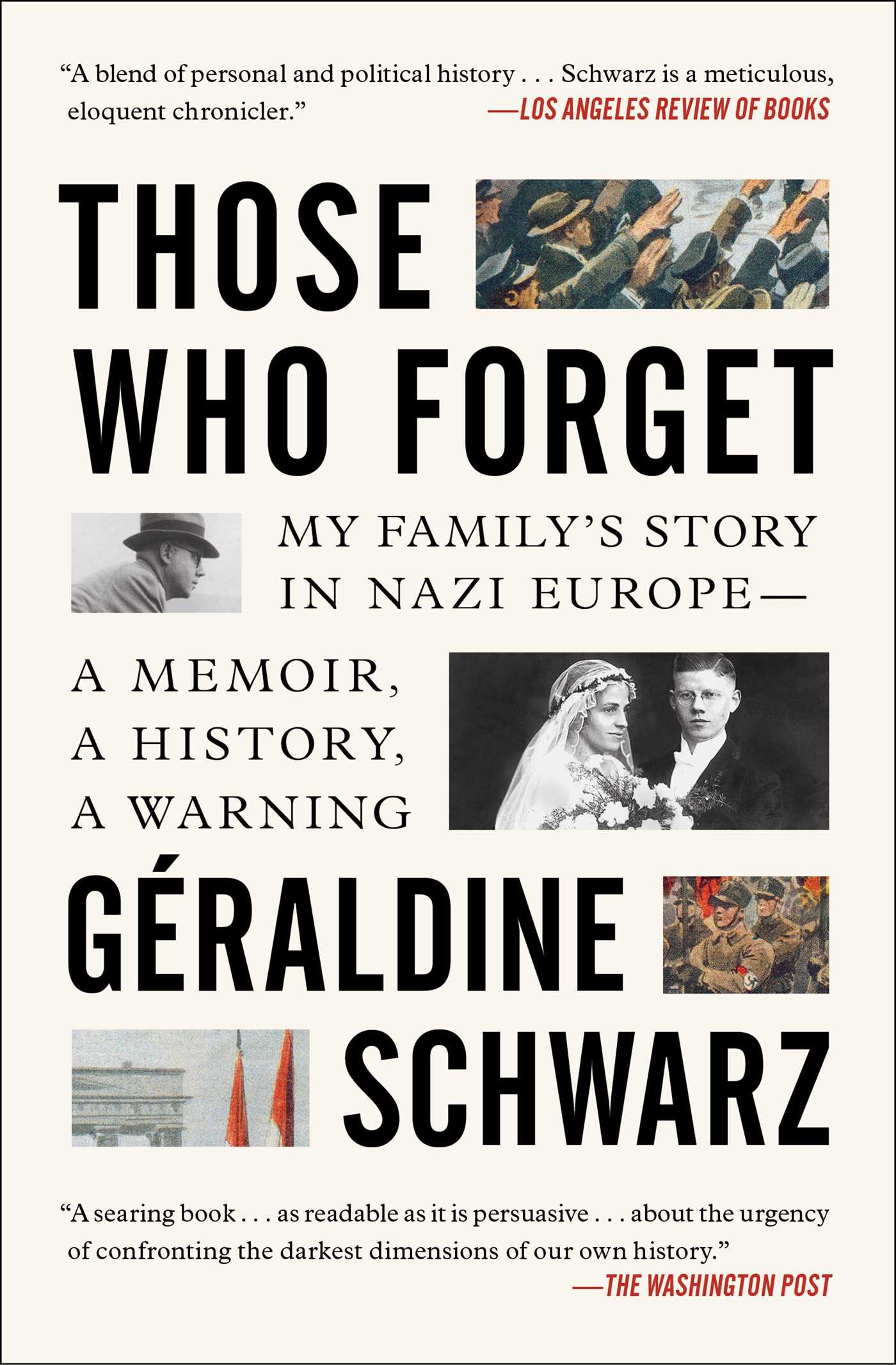
In Nazi Germany, Géraldine Schwarz’s grandparents lived like many of their neighbors. They were not active participants in the genocidal war machine, but they didn’t oppose it, either. They took their place among the “Mitläufer” — those who follow the current. In doing so, they helped support the slaughter of millions of Jews and became Hitler’s accomplices, Schwarz says.
The author of “Those Who Forget: My Family’s Story in Nazi Europe” spoke in March at Harvard Law School in an event co-sponsored by the Human Rights Program at Harvard Law School and Harvard Law School Advocates for Human Rights.
Schwarz, a Berlin-based journalist, said she wrote the book as a contribution to the culture of remembrance in Germany, where confronting the horrors of the Holocaust and acknowledging societal responsibility are considered by many a duty of everyday life.
“In Europe, we tend to divide the attitude of society during World War II in three categories: perpetrators, heroes, or victims,” said Schwarz, the daughter of a German father and a French mother. “We forget about the Mitläufer, who were one of the major actors responsible for the consolidation of the Third Reich.”
Remembering those who go along with government crimes is important because none of us can claim immunity, says Schwarz. In sharing the story of her family’s past, she hopes that readers and listeners realize how easy it is for any citizen to become complicit in acts of terror.
Read coverage of Geraldine Schwarz’s book event in the Harvard Gazette
Want to stay up to date with Harvard Law Today? Sign up for our weekly newsletter.
